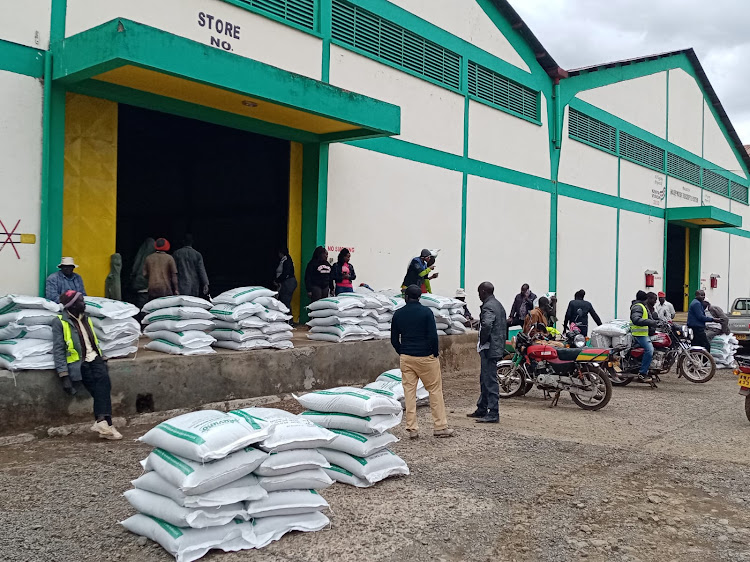- Kenya’s fertilizer distribution reforms were introduced by Ruto’s administration when it ascended to power.
- Fertilizer consumption in Kenya averaged 59 kilos per hectare of arable land between 2017 and 2021
- AGRA says the disruption in the supply chain has forced SME agro dealers to cease operations, leading to a dysfunctional fertilizer distribution system.
Kenya’s fertilizer distribution reforms have led to a 20.5 per cent drop in the country’s fertiliser usage, new findings by the AGRA show.
The organisation, formerly known as the Alliance for Green Revolution, in its Africa Agriculture Status Report 2024 points out that the government led changes have seen consumption drop from 835,000 tonnes in 2020 to 663,400 tonnes in 2022, with further declines anticipated in 2023 farming season.
According to data from the World Bank, fertilizer consumption in Kenya averaged 59 kg per hectare of arable land between 2017 and 2021, with per capita consumption increasing by 2.3 percent annually up to 2021.
By 2020, fertilizer usage in Kenya peaked at 835,000 tonnes, however, the introduction of the second phase of the National Fertilizer Subsidy Programme (NFSP II) in 2020 marked a turning point.
“The government shifted its delivery model, opting to distribute subsidized fertilizer through the state-owned National Cereals and Produce Board (NCPB) instead of relying on micro, small, and medium-sized enterprises (MSMEs) for last-mile delivery,” the report reads in part.
In late 2022, President William Ruto’s government initiated a subsidised fertiliser programme to bolster Kenya’s agricultural sector productivity and help stabilise food prices. This led to a nationwide registration of farmers to deliver subsidised fertilisers by use of an e-voucher system to ensure traceability and full accountability of the farm input.
Soy legislator David Kiplagat has been pushing the Ministry of Agriculture and Livestock Development to consider giving farmers vouchers to purchase fertilisers from retailers at a subsidised price of $19 (KSh2500) per bag, in the event of shortage at NCPB depots.
Read also: Africa’s plan to enhance fertilizer access and soil health takes root
Kenya’s fertilizer distribution reforms
The report, however, notes that this decision effectively sidelined existing private sector input distribution networks, resulting in a significant drop in the volumes handled by last-mile agro-dealers, which fell by between 77 per cent to 88 per cent in 2023.
AGRA says the disruption in the supply chain has forced SME agro dealers to cease operations, leading to a dysfunctional fertilizer distribution system.
“Medium to large-scale blenders are now likely to downscale their operations due to unsold stock, reversing years of growth in a sector that has traditionally been led by the private sector,” reads the survey.
“Policy triggers are therefore equally effective in inadvertently causing disinvestment that either halts or reverses years of growth in a sector that is private sector-led,” said AGRA
Most of the additional capacity, 92 per cent came from medium and large-scale fertilizer companies such as Yara East Africa Limited, Timac Agro, Elgon Kenya Limited, and ETG Kenya Limited (AfricaFertilizer, 2024).
The report also highlighted a shift towards more inclusive agribusiness investments by medium and large scale agribusinesses. This trends reveal a growing focus on integrating smallholder farmers and enhancing rural livelihoods.
“By harnessing the power of the private sector, we can drive meaningful food systems transformation and achieve sustainable growth. This report provides actionable insights on supporting MSMEs to enhance their impact on food security and economic development,” said President of AGRA Dr. Agnes Kalibata.
